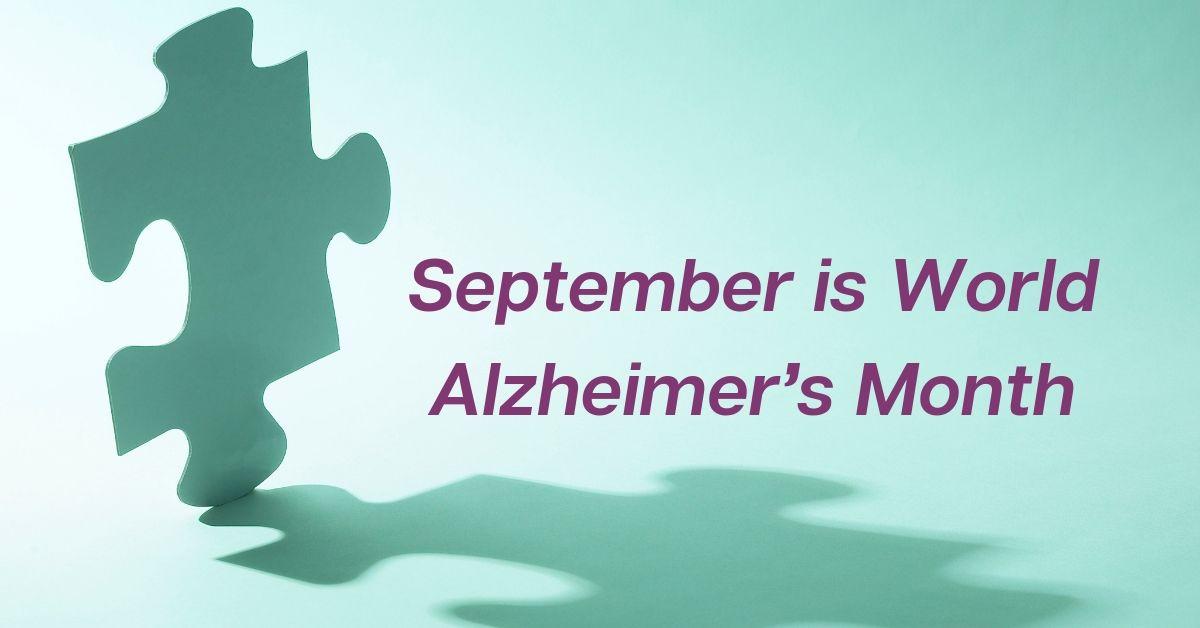- The Benefits of Being Social for Older Americans - February 29, 2020
- Common Excuses for Not Buying Hearing Aids - February 29, 2020
- How Treating Hearing Loss Improves Your Relationships - February 18, 2020
September has been designated as a month dedicated to raising the public awareness of Alzheimer’s disease. Make September a month of empowerment through education and information. At All Ear Doctors, we are concerned primarily with the link between hearing loss and dementia – and Alzheimer’s disease is the most common form of dementia.
Understanding Alzheimer’s Disease
Alzheimer’s disease is a type of dementia that has claimed 50 million people worldwide and brings in an additional 10 million new cases each year. We are in a position to break the stigma and be proactive with a degenerative brain condition that renders our elderly to being dependent upon their families and caregivers to an extreme degree.
Our thoughts, memories, and language are corrupted when dementia sets in and Alzheimer’s disease is one of the most common forms of dementia. It affects people over 65 years of age. Some of the common symptoms of Alzheimer’s disease include:
- Disorientation
- Behavioral changes
- Inability to perform normal daily tasks
Alzheimer’s disease is a condition that is caused by multiple factors and up to date, not one particular factor has been found to be specific to its cause. This means we need to create a comprehensive health program in order to maintain our cognitive health. The more we know the better we can be prepared for ourselves and our loved ones.
As we age, our brain also changes, and while dementia and Alzheimer’s disease are not the inevitable outcome; however, the incidence of both are on the rise and we are best to be proactive to our benefit and for society as a whole.
Let’s take a closer look at some of the common risks associated with a greater risk of dementia and Alzheimer’s occurring. According to the Mayo Clinic, some of the factors include:
- Lack of exercise
- Obesity
- Smoking or exposure to secondhand smoke
- Genetics
According to the Mayo Clinic “Studies have found an association between lifelong involvement in mentally and socially stimulating activities and a reduced risk of Alzheimer’s disease.”
Our cognitive health
Alzheimer’s disease is a slow and insidious breakdown of the ability of our brain to process our thoughts, memories, and language. Because the population of people affected by dementia will reach an estimated 150 million by the year 2050, the World Health Organization (WHO), they are also part of the worldwide initiative this September. The following are a few of their important suggestions:
- early diagnosis in order to promote early and optimal management
- detecting and treating challenging behavioral and psychological symptoms
- optimizing physical health, cognition, activity and well-being
Early detection and diagnosis are key strategies in dealing with most health-related conditions. We rely on our hearing in order to communicate effectively. Medical studies and research have found that ignoring hearing loss accelerates our cognitive decline. Our brain establishes neural networks throughout our lives in order to effectively interpret and translate sound. We depend on these established pathways to recognize sounds from alerting us to danger to engaging in conversation. When our hearing is negatively affected, the networks we depend upon for correct hearing fall into disrepair due to inactivity and distorted sound input.
It is imperative for our hearing health to be monitored and assessed so that we maintain our communicative abilities. Too often people leave their hearing issues unaddressed and that makes them prone to cognitive impairment. The link between hearing loss and our cognitive health is undeniable.
Research on Hearing Loss and Cognitive Abilities
The English Longitudinal Study of Aging enrolled participants over the age of 50 and tracked their hearing loss in relation to their potential development for dementia. After data analysis, the results showed that the volunteers with low hearing abilities were almost twice as likely to develop dementia and those with normal hearing levels.
In Germany, data for over 150,000 people tracked from the years 2006 to 2010. The incidence of dementia increased from 20 percent to 40 percent for people with hearing loss.
Another study published by Dr. Lin of John Hopkins University School of Medicine in 2011 used data from the Baltimore Longitudinal Study on Aging (BLSA). Information gathered on people from the years 1990and 1994 were analyzed. The participants were examined every 2 years until the year 2008. Results showed that the higher the level of hearing loss the greater the incidence of dementia.
Seeking Treatment for Hearing Loss
The outlook we need to implement is to remain informed and proactive. As part of an overall health goal, we should stay alert about our hearing needs and practices. An appointment with our team at All Ear Doctors is a good way to start. Your relationships and socialization can be strengthened and endure the effects of hearing loss and its impact on your cognitive health.
All Ear Doctors
At All Ears Doctors, we welcome any questions you or a loved one may have regarding your hearing. Feel free to give us a call and with your first appointment, you can begin to bolster and enrich your auditory health for a better, richer hearing experience.

